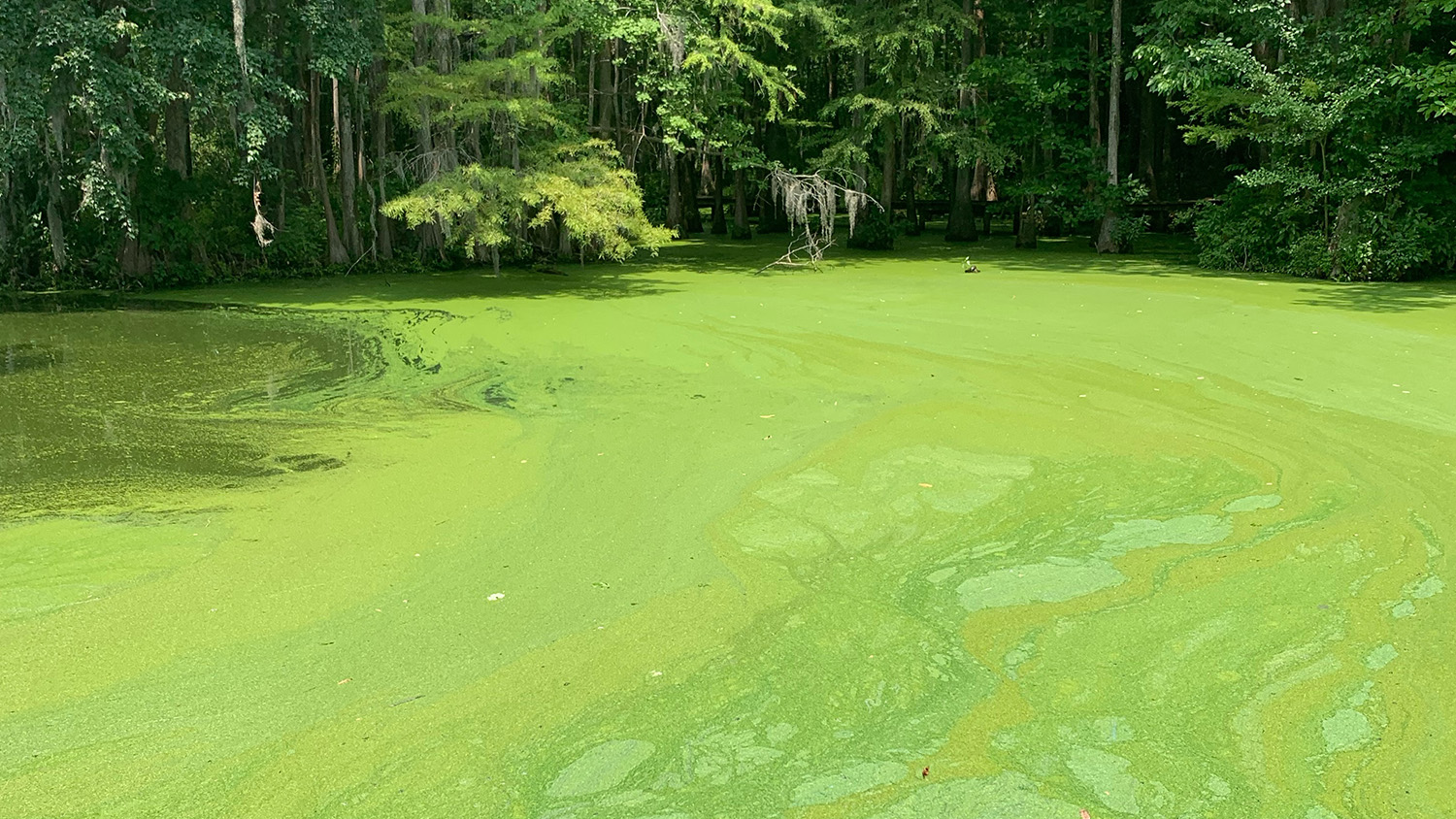The Bloom Is Off
Understanding the toxic effects of algae — and how communities can take action — is goal of new interdisciplinary center.

By Marti Maguire
Blue-green slicks of scum floating atop rivers and lakes are not an uncommon sight in North Carolina — but the toxins produced in these algal blooms, which contaminate water and seafood, are not well understood. A diverse interdisciplinary group of NC State researchers is tackling this problem with help from a $6.9 million federal grant. The center aims to better understand how and why toxic algae forms, to what extent it endangers the public and what role communities can play in combating the problem.
Jointly funded by the National Science Foundation and the National Institute of Environmental Health Sciences, the five-year grant created the N.C. Center for Coastal Algae, People and Environment. Its goals include helping set guidelines for safe seafood and water, creating tools to assess risks posed by algae and establishing community programs to collect data and inform the public. The center is led by director Astrid Schnetzer, professor in the Department of Marine, Earth and Atmospheric Sciences, and co-director Scott Belcher, professor in the Department of Biological Sciences. One aspect will study the blooms and their effect on seafood across the Pamlico-Albemarle Sound System, which is the country’s largest lagoonal estuary.

The center brings in researchers from beyond the traditional sciences, from areas including public health and engineering. Bethany Cutts, associate professor in the Department of Parks, Recreation and Tourism Management, leads the public outreach. Cutts said she expects communities to share their concerns and be involved in data collection early in the project, an approach that differs from more traditional educational efforts.
The center can also help coordinate existing efforts by municipalities, environmental groups, fisheries and others to monitor algal blooms. Cutts hopes this coordination among researchers in different fields as well as with communities will yield important results: “My vision would be that it would inspire innovative and cooperative solutions to these challenges and create change that benefits North Carolina over the long term.”


